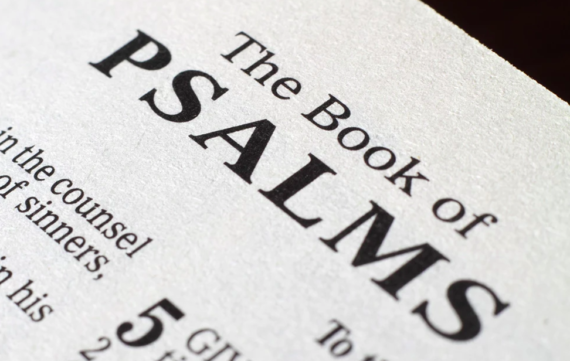There are several theories about the origin of this psalm. The most popular may be that it is related to the invasion of Judah by Sennacherib (recorded in 2 Kings 18-19). It does seem that some situation like that one was in mind. Part of the psalm (6) also reminds us of the Song of Moses and Miriam (Ex 15: esp 1, 21).
How are we to relate to such events in the past? How are they relevant in our lives? How is it important that “God be known in Judah?” Is he not the God of all the world?
So why open the psalm in such a provincial manner? For God to be known everywhere, he must begin to be known in the events of a given life somewhere.






Known in Judah
God was known in Judah.
In Judah God is known; his name is great in Israel. 2 His abode has been established in Salem, his dwelling place in Zion. (1-2).
Perhaps, if God had not intended to become man and dwell among us, there would have been no need for him to choose a given nation within which to work. But because of the nature of our God, and the nature of the deliverance he worked for us, there had to be a chosen nation. If he was going to come, he had to come as part of some human family. God had to be known in Judah, because God was going to be known in Jesus (cf John 4:19-26).
Successful worldwide endeavours must begin somewhere, with some particular people. And for an endeavour to work with a given people, it must work in the lives of individuals within that people.
So, we are wrong to think that the work of the Lord must never be local, provincial, even individual. It must be local, provincial, and individual before it can become national and global.
Known in judgment
God was known in acts of judgment.
There he broke the flashing arrows, the shield, the sword, and the weapons of war. 4 Glorious are you, more majestic than the mountains full of prey. 5 The stouthearted were stripped of their spoil; they sank into sleep; all the men of war were unable to use their hands. 6 At your rebuke, O God of Jacob, both rider and horse lay stunned. 7 But you, you are to be feared! Who can stand before you when once your anger is roused? 8 From the heavens you uttered judgment; the earth feared and was still, 9 when God arose to establish judgment, to save all the humble of the earth. 10 Surely the wrath of man shall praise you; the remnant of wrath you will put on like a belt (3-10).
We want God to be known only through being nice and kind. This is silly, sentimental nonsense.
“Saving the humble” (9), involves executing judgment on their oppressors. These acts of judgment are rarely obvious to the unbelieving eye. An account of the defeat of Sennacherib written from a modern point of view would attribute it to a hygiene problem in the Assyrian camp.
Clearly illness was involved. Illness was the instrument God used in that case. We often stare at God’s judgment and attribute it to some intermediate cause, failing to see his hand behind the cause that is behind the event.
Even the wrath of man can be used by God to his purpose and ultimately his praise (10).
Fear of God
Therefore, he is to be feared.
Make your vows to the Lord your God and perform them; let all around him bring gifts to him who is to be feared, 12 who cuts off the spirit of princes, who is to be feared by the kings of the earth. (11-12).
A little bit of knowledge is a dangerous thing. Knowing only one side of God is not to know God at all.
Some have so emphasized the love of God that they know nothing really of God. The love of God is a great, central, critical truth, but it is the fear of God that is the beginning of knowledge (Job 28:28; Ps 111:10; Pr 1:7; 9:10;14:27; 15:16; 15:33; 19:23; 22:4; 23:17; Acts 9:31)
It is not much of an exaggeration to say that the two greatest needs we have are to increase the fear of God and the love of God. Doing both at once sounds paradoxical but is the only way it can be done. The one cannot really exist without the other. You might draw closer to your cat or dog without fear, but no one approaches the real God fearlessly. In some sense, love and fear are almost synonymous when we are talking about God (see Pr 16:6).
How can we fail to fear a God who can take anything that we think or do (no matter how foolish and ugly and contrary to his will) and use it for his purposes?
How can we not love a God who will take anything we do, no matter how foolish, and use it for his good purposes?
May this great God be known in our lives, our homes, our churches, our communities, and ultimately in all the world.

